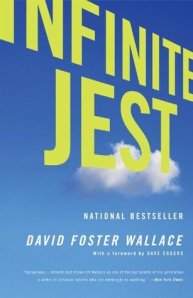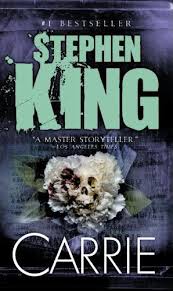Infinite Jest is a 1079 page bible novel, written in the narrative form. However, differentiating between the typical narrative structure, Infinite Jest goes beyond what is expected, giving insight upon the characters through various point-of-views that mostly all contain footnotes; of which delves further into the disclosed and personal lives of his characters. Upon reading Infinite Jest, which at first seemed to be entirely focused on entertainment—essentially as a commentary on how it is the one substantial tool that drives all of humanity—the realization of the actual story emerges later on. This realization—of which I believe to be the actual point of the novel—is human relations, and even more specifically, the complexity within familial relationships.
 Infinite Jest is best described as a study between the discourses of human relationships and entertainment. While half of the novel explores the dependency and power that entertainment has upon every aspect of the living world, the other half presents the struggles that people have with simply living unconditionally. It is a hard book to describe, as its main point seems to be centered on the theoretical, rather than the narrative. But for those who want to know the basic run-down of the plot, it is this: a film cartridge so powerfully entertaining that whoever watches it becomes so extraordinarily obsessed that they cannot go back to living their lives, eventually causing them to die, is “missing”. After hearing about this film cartridge, Quebec separatists begin their hunt for this cartridge, hoping to use it as a terrorist device against the United States of America. Three of the main characters, Hal, who is the son of the film-maker, Joelle, the actress in the film, and Marathe, the Quebec spy who is searching for the film are followed throughout the novel, showcasing their lives separately at first, and then in connection to one another.
Infinite Jest is best described as a study between the discourses of human relationships and entertainment. While half of the novel explores the dependency and power that entertainment has upon every aspect of the living world, the other half presents the struggles that people have with simply living unconditionally. It is a hard book to describe, as its main point seems to be centered on the theoretical, rather than the narrative. But for those who want to know the basic run-down of the plot, it is this: a film cartridge so powerfully entertaining that whoever watches it becomes so extraordinarily obsessed that they cannot go back to living their lives, eventually causing them to die, is “missing”. After hearing about this film cartridge, Quebec separatists begin their hunt for this cartridge, hoping to use it as a terrorist device against the United States of America. Three of the main characters, Hal, who is the son of the film-maker, Joelle, the actress in the film, and Marathe, the Quebec spy who is searching for the film are followed throughout the novel, showcasing their lives separately at first, and then in connection to one another.
While this novel is long, it is brilliant and undoubtedly a masterpiece. The themes, plots, and characters are unique and deeply constructed, so much so, that even I must admit that I probably missed out on a bunch of information. That being said, I would recommend this book to anyone who is an avid reader—though, I’d recommend reading it at a time where you can pace yourself and really read it properly. Meaning, don’t add this to your reading if you are in school, or have a heavy workload ahead of you. While this book is entertaining, impeccably written, and beautifully constructed, it requires a lot of concentration and brainpower.
Fundamentally, Infinite Jest is a book that any self-proclaimed reader should have on their bookshelf. Personally, I know that I will be reading it again in the future, knowing that I will pick up on more of the information and giving it another chance to blow me away.





